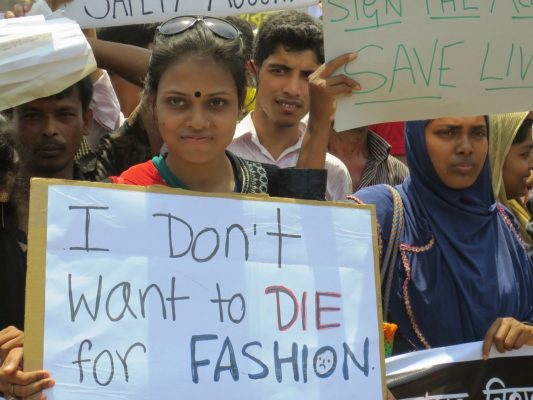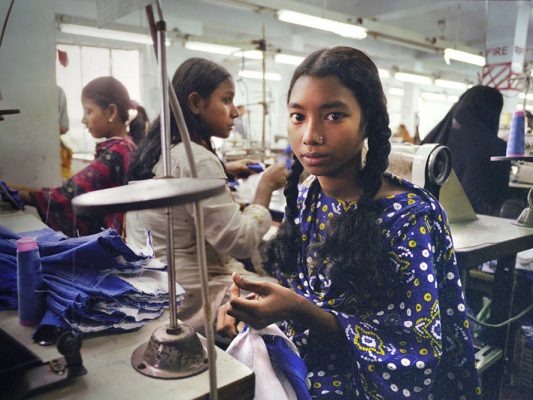By Isabell Spigel
Millions of women around the world are desperate for better lives. They are desperate to escape war-torn countries, desperate for opportunity and freedom to change their own livelihoods, and desperate to break the cycle of poverty they often come from. So desperate that they often find themselves escaping from one form of suffering to another. Persuaded by tales of opportunity and better lives, many women refugees find themselves caught in dangerous human trafficking rings. For some, this means being enslaved in the sex industry. Others are forced into labor exploitation. No matter the case, these are not lives these women so desperately tried to seek out.
After the sex industry, the fashion industry is the world’s second in people being enslaved through human trafficking; the Ethical Trading Initiative reports that “71% of fashion companies indicate there is a likelihood of modern slavery occurring at some stage of their supply chain” (SOFFA). Such a feat is believable given the numerous chances for exploitation along fashion company’s never-ending supply chains. Beyond that, the industry is characterized by unsafe practices: both for the workers and the world. Accidents in factories and gruesome working conditions are all too common. Furthermore, the fashion industry is “the second largest polluter in the world after the oil industry” (SOFFA).

Clearly, the entire fashion industry is riddled with injustice and oppression. Besides their dangerous practices alone, they often find a way of targeting some of the most vulnerable people in the world, like women refugees and victims of sex trafficking. Enter the Social Fashion Factory— a product of the modern Fashion Revolution that looks to “break the chain” of the industry altogether (SOFFA). The Social Fashion Factory, or SOFFA, attacks the industry from all sides, offering meaningful training and work to women fighting for freedom, “produces from natural, manmade, or recycled biodegradable material,” and still ensures their designs fulfill the needs of the customer.
When it comes to addressing the financial vulnerability many of the women face that often leads them to human trafficking, they offer two entrances into the world of sustainable fashion. First has to do with basic employment: the women are trained on fashion technical skills and then hired into SOFFA’s production line. The other option is designed for women who want to become entrepreneurs. It begins with SOFEhub, an educational program based around becoming a sustainable and social fashion entrepreneur. Then, SOFFA connects them with machinery, sustainable materials, and access to their distribution channels so these women can sell their own designs.

Beyond that, SOFFA’s production processes align with their mission to break down the fashion industry as the world knows it. They use organic and Fair Trade certified fabrics, as well as making sure their products do not harm animals. Taking responsibility for their entire supply line further proves SOFFA’s commitment to changing the fashion industry as the world knows it.
Currently, SOFFA’s span of work remains small as there are only a few women involved in their program. While this means they definitely have a ways to go when it comes to breaking the chain of the fashion industry, it also means they get to directly see the impact of the program. Getting to individually know each woman, their pasts, and their lives after SOFFA, it becomes clear just how essential programs like these are. These women are now able to support themselves and their family with pride. While righting the decades of injustice that come from the fashion industry will take the work of many, starting small is enough to make a difference.


